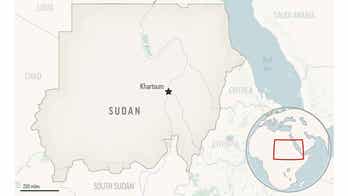To tackle overcrowding, littering, and risky "bullet climbing," the Yamanashi prefecture has implemented new regulations for the Mount Fuji Yoshida Trail, requiring climbers to make reservations and pay a fee from July 1st to September 10th.

Amidst concerns over rampant overtourism, littering, and dangerous "bullet climbing," the Yamanashi prefecture has introduced new regulations for those seeking to ascend Mount Fuji's Yoshida Trail during the climbing season from July 1st to September 10th.
According to the regulations, a maximum of 4,000 climbers will be permitted to enter the trail daily, with 3,000 slots available for online booking at a fee of approximately $18. The remaining 1,000 slots can be booked in person on the day of the climb.

The online booking system is accessible through the Mount Fuji Climbing official website, a joint initiative of the Environment Ministry and Yamanashi and Shizuoka prefectures. Climbers can choose between day hikes or overnight stays at designated mountain huts.
Upon providing personal information and the intended climbing date, climbers will receive a QR code that must be scanned at the 5th station to gain access to the trail. To prevent rushed ascents, climbers who have not secured an overnight hut reservation will be prohibited from proceeding between 4 p.m. and 3 a.m.
Yamanashi Governor Kotaro Nagasaki expressed gratitude for the public's understanding and cooperation in preserving Mount Fuji's ecological integrity.
The Shizuoka prefecture, where climbers can access Mount Fuji from another side, has been implementing a voluntary $6.4 fee per climber since 2014 and is exploring additional measures to balance tourism and environmental protection.
The implementation of these regulations follows the announcement by a town in Shizuoka of plans to erect a massive black screen on a sidewalk to obstruct a picturesque view of Mount Fuji. The measure aims to address the influx of tourists crowding the area to take photos, causing inconvenience to local residents and hindering business operations.
Overtourism has emerged as a growing issue at numerous popular destinations in Japan, such as Kyoto and Kamakura, due to the resurgence of foreign tourism since the easing of pandemic-related travel restrictions. Last year, Japan welcomed over 25 million visitors, and the Japan National Tourism Organization anticipates that the number will surpass 32 million in 2024, approaching pre-pandemic levels.
These new regulations are part of a wider effort to manage visitor numbers, preserve the environment, and ensure the safety of climbers on Mount Fuji, while still catering to the growing interest in experiencing Japan's iconic mountain.










